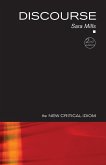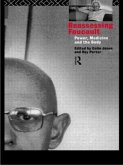Up Against Foucault introduces key aspects of Foucault's work to feminists, in ways which are less abstracted than much of the existing literature in this area. It includes an introduction to Foucault's terms, and fills a gap in the literature by clarifying the links between the everyday realities of women's lives and Foucault's work on sexuality and power. The contributors explore the implications of analysing power relations, sexuality or the body, without also thinking about gender and other social divisions. They bring their expertise from social theory and philosophy to bear on the same core issues; the ways in which Foucault provokes feminists into questioning their grasp of power relations, and the implications of the absence of gender in his own work. Up Against Foucault shows that in spite of his lack of interest in gender, Foucault does have much to offer feminism - proposing new ways of understanding the control of women and especially the control of sexuality and bodies. This book offers new ground in relating Foucault's challenge to feminism to feminisms challenge to Foucault. Feminists are up against Foucault because he questions the key conclusions which feminists have come to about the nature of gender relations, and men's possession of power. It is an appraisal of how seriously we need to take this challenge.
Bitte wählen Sie Ihr Anliegen aus.
Rechnungen
Retourenschein anfordern
Bestellstatus
Storno









